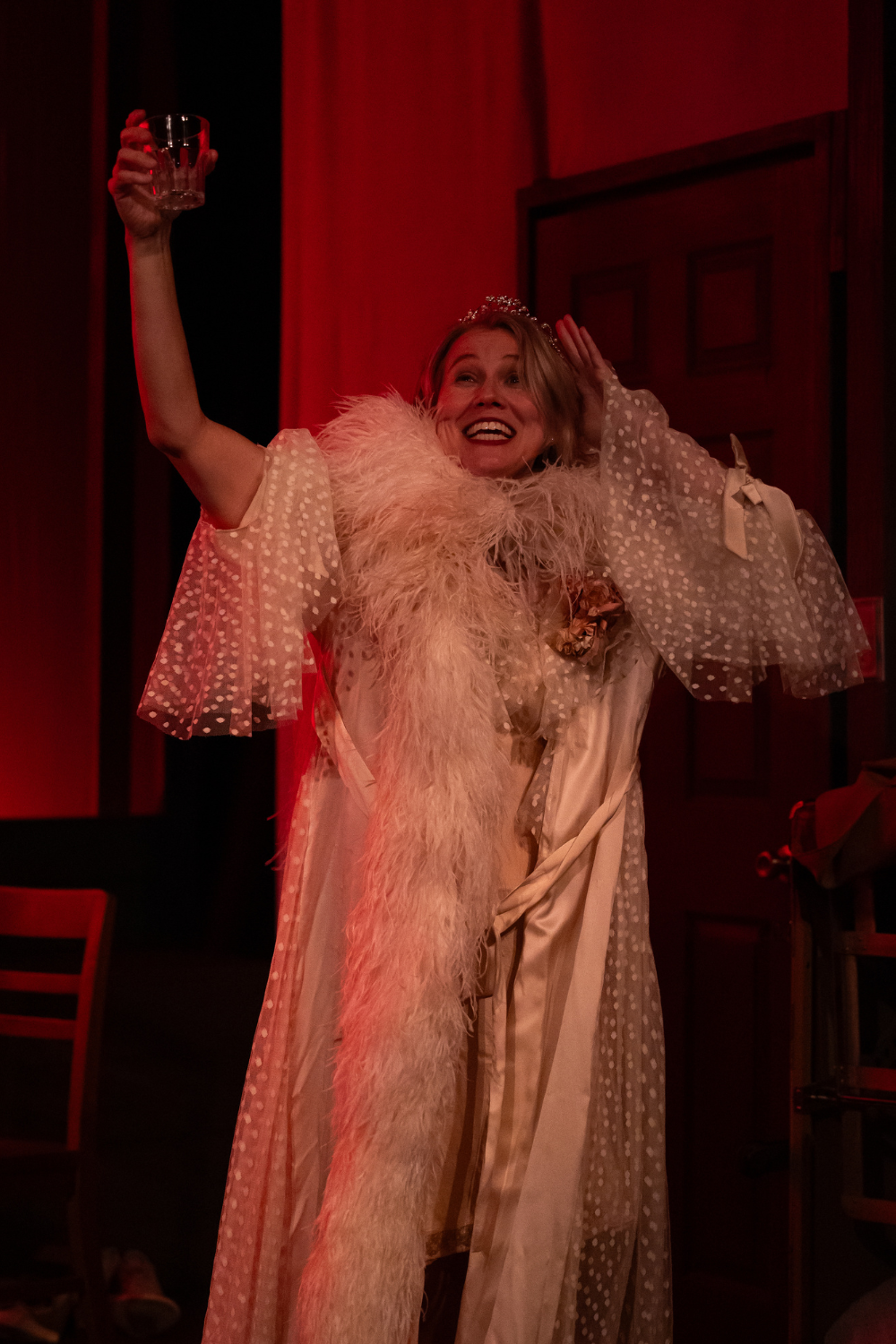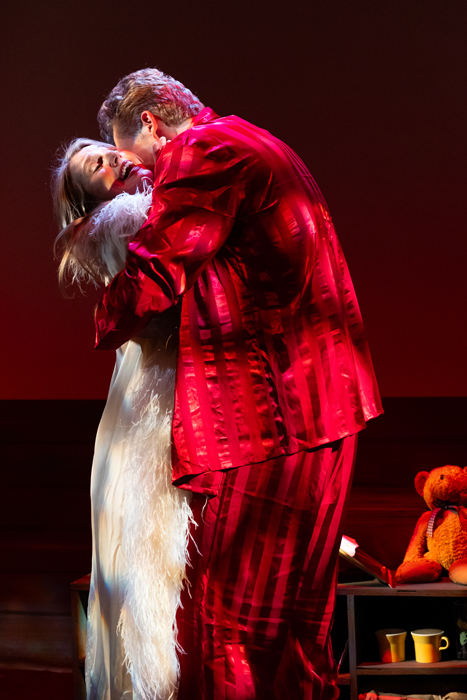Review: A Street Car Named Desire by New City Players

When an American classic such as Tennessee William’s A Streetcar Named Desire is produced by an innovative company like The New City Players, there are many reasons to attend. Whether the story is totally familiar and your perception is framed by that understanding or you have never seen the play (or the movie), you will be drawn into the story and become fully invested in this dynamic and compelling journey.

In his Director’s Note, Stuart Meltzer says “It was important to release the ghosts of past productions’ and that he does. He also describes it as a period piece, with societal norms that differ from those we work with today. The time frame and setting of the play are clear, so we accept that. What transcends in this thoughtful, intimate, yet powerful production are the relationships between family, the dynamics of couples and the fragility and insecurities of the the triangular relationship between the main characters.
Set in New Orleans French Quarter in 1947, we are introduced to Stella Kowalski and her husband Stanley, setting a tone between them that is lively, sexual and and comfortable in their boisterous group of friends. The drama is set in motion by the arrival of Blanche Dubois at their apartment for a visit. The reasons for her sudden presence are shrouded in mystery, deepened by the fact that Stella has not told her husband Blanche is coming. What is clear is Blanche’s nervousness and distain for the gritty surroundings in which she finds herself.
Not only is Blanche’s arrival our introduction to realizing the changed circumstances of Stellas life, but because of the spare set and divisions of space that we come to understand from the words and movement of the characters, the audience is left to imagine what constitutes a lowered standard of living beyond the small cramped quarters and lack of privacy. The innovative use of the space and musical interludes that accompany the changes of scene enhance the sultry tone and underlying sexuality of the play.

As the plot unfolds and secrets are revealed, the complexity of the many interlocking themes in this play make it clear why it is an enduring classic. Dealing with difficult family dynamics, adultery, abusive relationships, sexuality, addictions (in this case to alcohol) and the hope of better circumstances in the future are things that cross time and generations. Whether we as an audience are dealing with one or all of them personally or as societal issues, there is something for everyone to relate to here.
The performances in this particular production are both outstanding and complex and the actors, including the supporting cast, make each part their own. For each one, the tension between the choices they own, the options life has handed them, their own insecurities and the pressures of outside expectations are driving their actions. These complex human characters can appear to be monsters, victims or simply incapable of dealing with the circumstances that brought them to this moment.
Elizabeth Price says in her bio that Blanche DuBois is her number one bucket list role and after this performance, she can definitely check it off. She arrives with disdain for her surroundings, but certainty about her family stature and that her sister has abandoned it through leaving her personally and her choice to marry a man that Blanche sees as clearly beneath her. In many productions, Blanche arrives as a mentally fragile victim of circumstances, but Price leads us down a path from someone who still thinks she can pull it together to the final collapse of her sanity.

Tim Davis’s portrayal of Stanley, gives nuance to the character that show his complexity. We are introduced to a man who clearly loves life and his spouse, but must be in control of every situation and has insecurities always boiling below the surface. He is immediately suspicious of Blanche’s story and her motives, but it is also clear that he is trying to value his wife’s feeling while protecting his own interests and wanting to maintain his standing in the world framed by his perception of what constitutes manliness.His underlying anger gives way to classic abusive behavior, never outright apologies, but need and a sense that he is lucky to have captured (in every sense) this wife.

While Blanche immediately shows her disapproval and disrespect for Stanley, he initially makes an effort. Of course that quickly dissipates as he starts to suspect her story and her motives. As the close quarters and Blanche’s manipulations take a toll on the Kowalski’s intimacy, his anger takes over. As for Blanche, the realization that she can no longer control any situation through flirting and sexual promises loosens her tenuous hold on reality. Both of these characters are driven by the notion that their sexuality provides power and the feared loss of that power.
Casey Sacco’s portrayal of Stella is a true balancing act, the shifting point of this triangle as she is torn between her feelings for her husband and those for her sister. She has clearly made a choice to be in this marriage and loves her husband’s raw sexuality and life force even while she fears his violent epis
odes. The tension comes in her sister’s arrival and reminder of their past life and circumstances and her guilt is leaving her sister to deal with it. Stella’s inability to rise above old family dynamics and see Blanche clearly drives much of the plot and is made clear in new ways by word and subtle body language.

Jesus Reyna as Mitch gives a beautifully understated performance. From the first a bit out of step with his porker playing rowdy group of friends, trying to change the lonely circumstances of his life through a slowly developing romance with Blanche, his anger at discovering her lies is framed is disappointment too, giving us a character that is far more than a plot device.
The supporting actors in this production shines as well, giving us a sense of atmosphere and place. Alex Joyel, Steve Hubbell, Russell Kerr and Juan Gamero, at the hands of the director give full performances. In this intimate space, every detail counts.

As always, New City Players does not disappoint, following their own stated vision of helping South Florida become a more empathetic and thoughtful community by taking a play that we thought we knew and producing in a way that makes it relatable and relevant while staying true to the text.
Don’t miss it!

Similar Posts

The South Florida Theatre League Announces the Recipients of the 2025 Remy Awards
Recent Posts

Savoring Every Mouth-Watering Minute of SOBEWFF

Famous Artists from Key West: The Creatives Who Shaped the Conch Republic

Coral Gables: Your Guide to Art, Culture, and Outdoor Attractions

